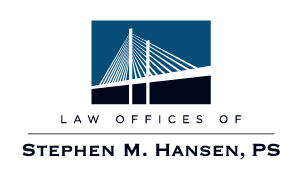6 Tips for Negotiating a Commercial Property Lease
May 29, 2015 —How to effectively negotiate the best deal for a commercial property lease.
If you are just starting your own business or looking to upgrade to a larger space, odds are you will be provided with a commercial lease prepared either by the landlord or the landlord's attorney.
Technically, the terms of a lease are negotiable, but that negotiating ability depends on whether your local rental market is hot or not. If there is a surplus of commercial space is available, you can probably negotiate lease concessions. If your neighborhood's rental market is mostly occupied or you are looking for a unique space, you'll have significantly less leverage.
Nevertheless, even in a buyer’s market, negotiating a commercial lease is a complex and challenging process that requires research and attention to detail.
So, now that you have found the perfect location, what’s next? The following are some tips for successfully leasing a commercial space.
Set the Terms of the Lease
The rent you will pay and term of the lease should be your first negotiation point. It is important to remember not to over-commit while allowing yourself some flexibility for the long run. It is usually recommended that small business owners negotiate 1 to 2-year leases with an option to renew.
In addition, you will also want to take into account and negotiate rent increases over the original term and any renewal options so that you are not unexpectedly hit without warning.
Clearly Understand the Expenses
As with any lease, commercial real estate landlords often tack on added expenses such as maintenance fees, upkeep for common areas and facilities and so on. Additionally, there are utility expenses which are typically the responsibility of the tenant, but you will need to know how they are calculated. Are they individually metered or allocated by square footage? Ensure that all of the fees, policies and potential costs are provided in order to include them in your negotiations.
Be Aware of Maintenance and Repair
Whereas a residential lease will often put the responsibility of upkeep and maintenance on the landlord, commercial leases are different.
Commercial leases vary in their management of this. While some require the tenant to take responsibility for all property maintenance and repairs while others specify that the tenant is only responsible for certain things such as electricity, plumbing and air conditioning. Confirm who is responsible for what and how much the tenant must pay for maintenance and repair. A real estate attorney can assist in explaining and clarifying your legal rights.
Read and Understand the Whole Lease
Make sure to read the commercial lease thoroughly and hire a real estate lawyer who specializes in commercial real estate to examine and go over any clauses and fine print.
Incorporate Clauses to Protect your Business
In order to safeguard your investment and long-term business security, it is well worth it to investigate and negotiate prospective add-on clauses to your lease. These may consist of:
- Subleasing
- Exclusivity clause
- Co-tenancy
Know the Consequences if You Default
Unfortunately, businesses close their doors without any notice all the time because of a defaulted lease. Protect your business and your customers by identifying and understanding what you are agreeing to upfront.
- If you default on your lease, can you be locked out immediately?
- Will the landlord start eviction proceedings?
- Can you negotiate additional time to pay should you default?
If you want your business to be successful, taking the first step and investigating your commercial lease options is essential.
Find a Lawyer Experienced in Commercial Real Estate Law
With literally decades of experience in negotiating commercial real estate leases, we can guide and advise you. Call the office at 253.302.5955, or use the online contact form to arrange for a a consultation.

